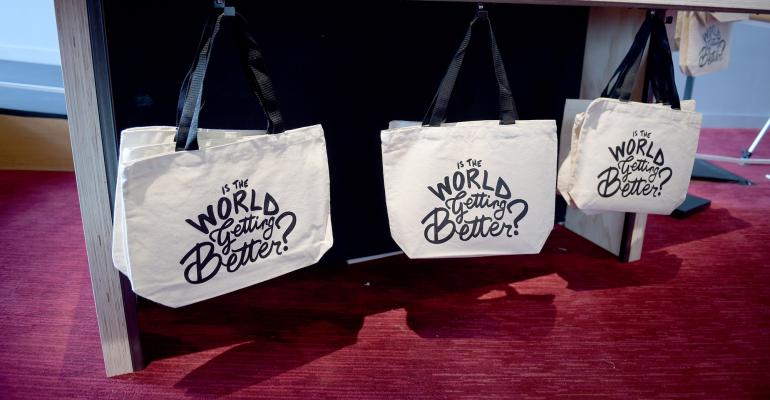In 2015, the United Nations adopted the 2030 Agenda for Sustainable Development. It established 17 Sustainable Development Goals that address critical areas of economic, social and environmental development that impact billions of people.
These SDGs were ratified by 193 governments and apply to every country—including the United States.
The categories are: no poverty, zero hunger, good health and well-being, quality education, gender equality, clean water and sanitation, affordable energy, decent work and economic growth, industry, innovation and infrastructure, reduced inequalities, sustainable cities and communities, responsible consumption and production, climate action, life below water, life on land, strong institutions of peace and justice, and partnership to achieve these goals.
Alarmingly, three years into the project’s 15-year timetable, the U.N. reports little progress. Funding is trillions of dollars short. The United States ranks last among the G20 nations in achieving the SDGs and 36th among all the countries in the world.
Led by the Bill and Melinda Gates Foundation, other foundations and philanthropists are stepping up and committing billions of dollars for achievement of SDGs. There’s much more to be done; however, every philanthropist, whether giving through a family or corporate foundation, donor-advised fund or personal funds, can apply an SDG lens to their giving decisions.
Where to Start?
Although the giant foundations tend to act globally in their pursuit of the SDGs, it’s equally important for the rest of the philanthropic sector to act locally, regionally and nationally.
Donors/clients frequently ask, “Where do we start?” They should begin by asking this question: “Does our mission or passion align with one or more SDG goals and targets?” Given the breadth of these issues, the answer is usually “yes.” They need to identify an SDG. Then, they should dig deeper to determine the specific targets established within the broader goals to see how these targets mesh with their own interests.
Since the SDGs address problems much larger than any one funder can tackle, your client should ask: “Who else is focusing on the same issues?” For example, there are several funding collaboratives for the SDG focusing on climate change, such as The Climate and Energy Funders Group and the Climate Works Foundation. For the SDG focused on gender equality, consider the Women’s Funding Network. For the SDG to protect life below water, see Funding the Ocean. And so on.
Once your client locates appropriate funding collaboratives, they need to learn about their initiatives and “best practices,” attend their meetings, read their publications and ascertain how your contribution—at any level in any place–-can help advance the broader SDG goals.
Promote the SDG Paradigm
Your clients need to ask the beneficiaries of their philanthropy how their work fits into the SDG paradigm. They could request local nonprofits seeking their support to align their work with the SDGs, which will then enhance awareness of (and focus on) these important issues. This holds true for formal grant application processes as well as less-formal giving efforts.
Lastly, your clients should communicate their SDG-centric approach on their websites, newsletters and, in less-formal communications, to other stakeholders in the philanthropic sector. They must intentionally incorporate their role in the SDG effort in all communication efforts.
Achievement of the U.N. SDGs by 2030 will require that all three legs of the stool—government, business and philanthropy—do their part.
Natalie Ross, vice president of External Relations for the Council on Foundations, defines philanthropy’s role as “essential because of what we can bring to these goals—collaboration, engagement with grassroots leaders, a willingness to take risks and leverage resources—which are critical components of global development. Funders should bring this experience and expertise to bear as they work to align their domestic grant-making within a global development framework.” For more information, see SDG Funders and SDG Philanthropy Platform.
Bruce DeBoskey, J.D., is a philanthropic strategist working across the U.S. with The DeBoskey Group to help families, businesses, foundations, and family offices design and implement thoughtful philanthropic strategies and actionable plans. He is a frequent keynote speaker at conferences and workshops on philanthropy. Visit deboskeygroup.com.





